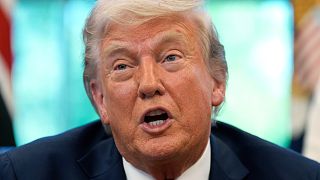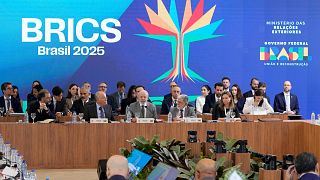Nigeria
As Nigeria grapple with the fallout from the slump in global oil prices that has slashed the country’s revenue, the Central Bank of Nigeria (CBN) on Tuesday abandoned its naira peg to the dollar in favour of a flexible currency regime.
The policy u-turn is set to boost local manufacturing and exports and stave off a recession.
However, CBN governor, Godwin Emefiele recently sparked off confusion in Africa’s biggest economy by declining to explain how the shift from a naira fixed at 197 to the dollar would be implemented.
He said details would be published in a few days, after a Monetary Policy Committee (MPC) meeting in the capital, Abuja.
“The MPC voted unanimously to adopt a flexible exchange rate policy to restore the automatic adjustment properties of the exchange rate,” he said.
Financial analysts have questioned the wisdom in announcing a major shift in policy without spelling out how it would be implemented.
The country’s currency, naira has weakened in recent times and inflation risen to 13.7 percent, while a lack of foreign exchange has affected businesses leaving fuel importers unable to buy supplies.
Africa’s top crude producer relies on oil for nearly three-quarters of its government revenue and more than 90 percent of foreign exchange.
On the black market, the naira is trading 40 percent below the official rate as manufacturers and importers pay massive premiums to avoid hefty official currency curbs now blamed for tipping the economy towards recession.
President Muhammadu Buhari had resisted calls for a devaluation of the naira through out his first year in office.
Financial experts urge Nigeria to adopt a more flexible foreign exchange policy or risk economic meltdownhttps://t.co/ITuFsQeCz3
— The Guardian Nigeria (@GuardianNigeria) May 20, 2016
The CBN also resisted calls for the devaluation of the naira from the official rate of 197-199 to the dollar, even as black market rates used by most businesses and importers are at about 350.
But Vice president Yemi Osinbajo hinted at change this month, he said a more flexible approach was needed to spur growth.
Nigeria relies on oil exports for 70 percent of government revenue but the global crude price slump and attacks on oil pipelines and facilities have cut output to 1.4 million barrels per day.
Emefiele admitted the economy of the country was likely to contract in the second quarter, falling into official recession, but blamed delays in implementing the budget for much of the decline.













Go to video
Funeral held in Kenya for TikTok content moderator
01:36
Migration and refugee policies key to economic growth, Say UN and IMF experts
Go to video
Foreigners face gold trading ban in Ghana beginning May 1
01:09
Yinka Shonibare explores identity and hybridity in new Madagascar exhibition
Go to video
Libya devalues currency for first time in four years amid fiscal strain
Go to video
South Africa's presidency expresses concerns over new US tariffs